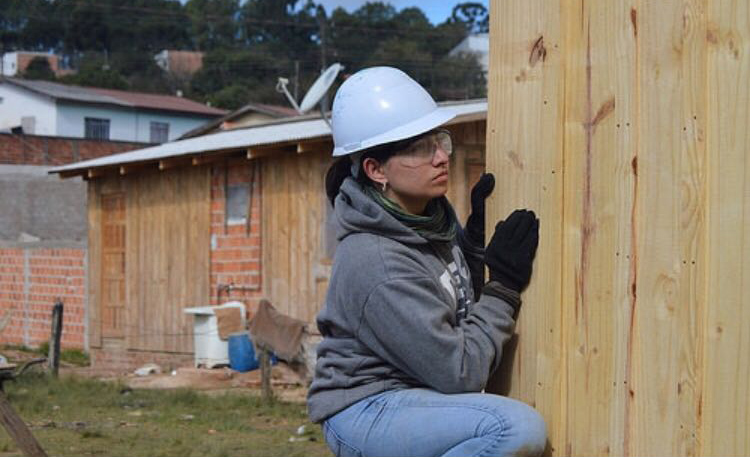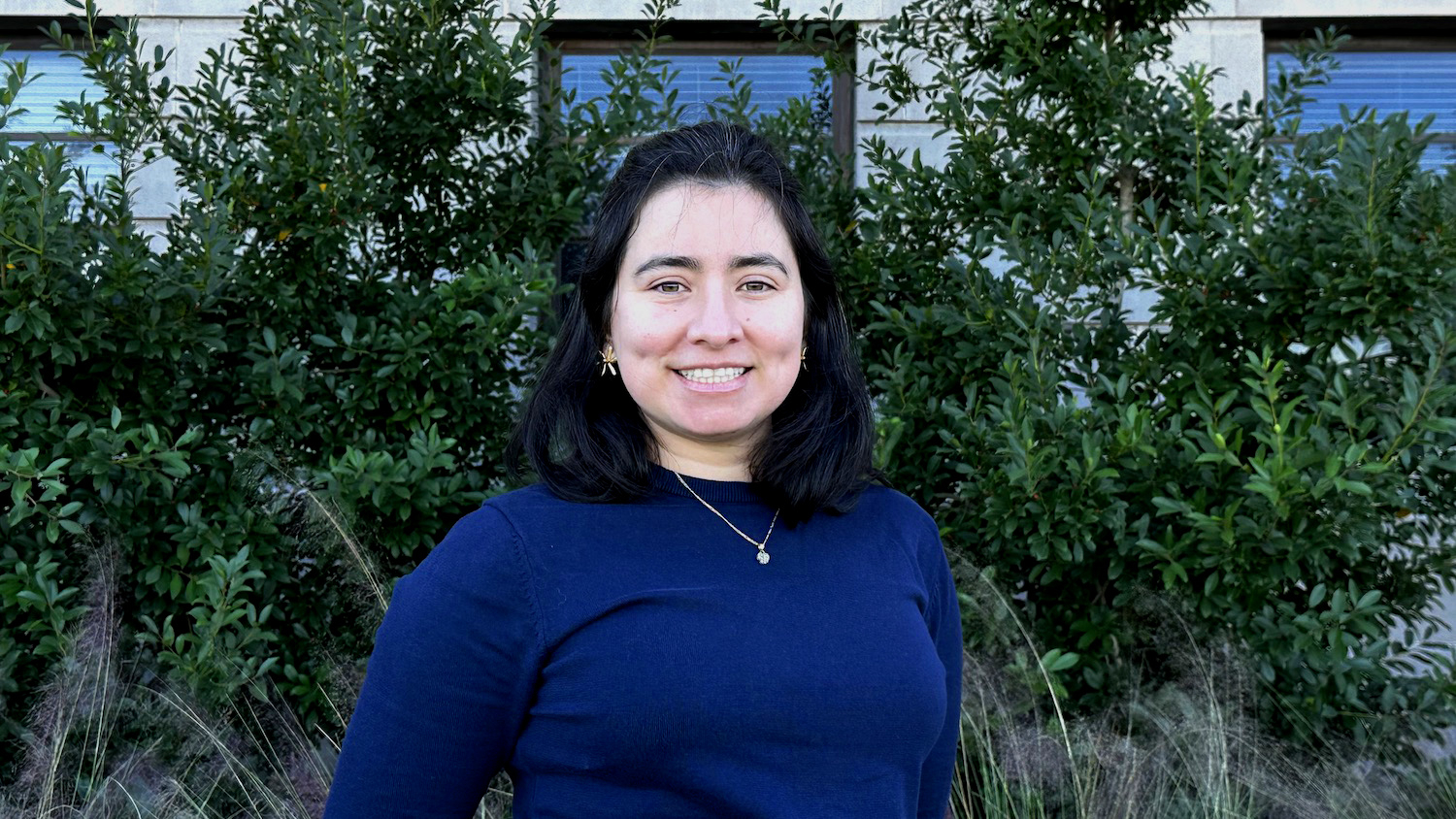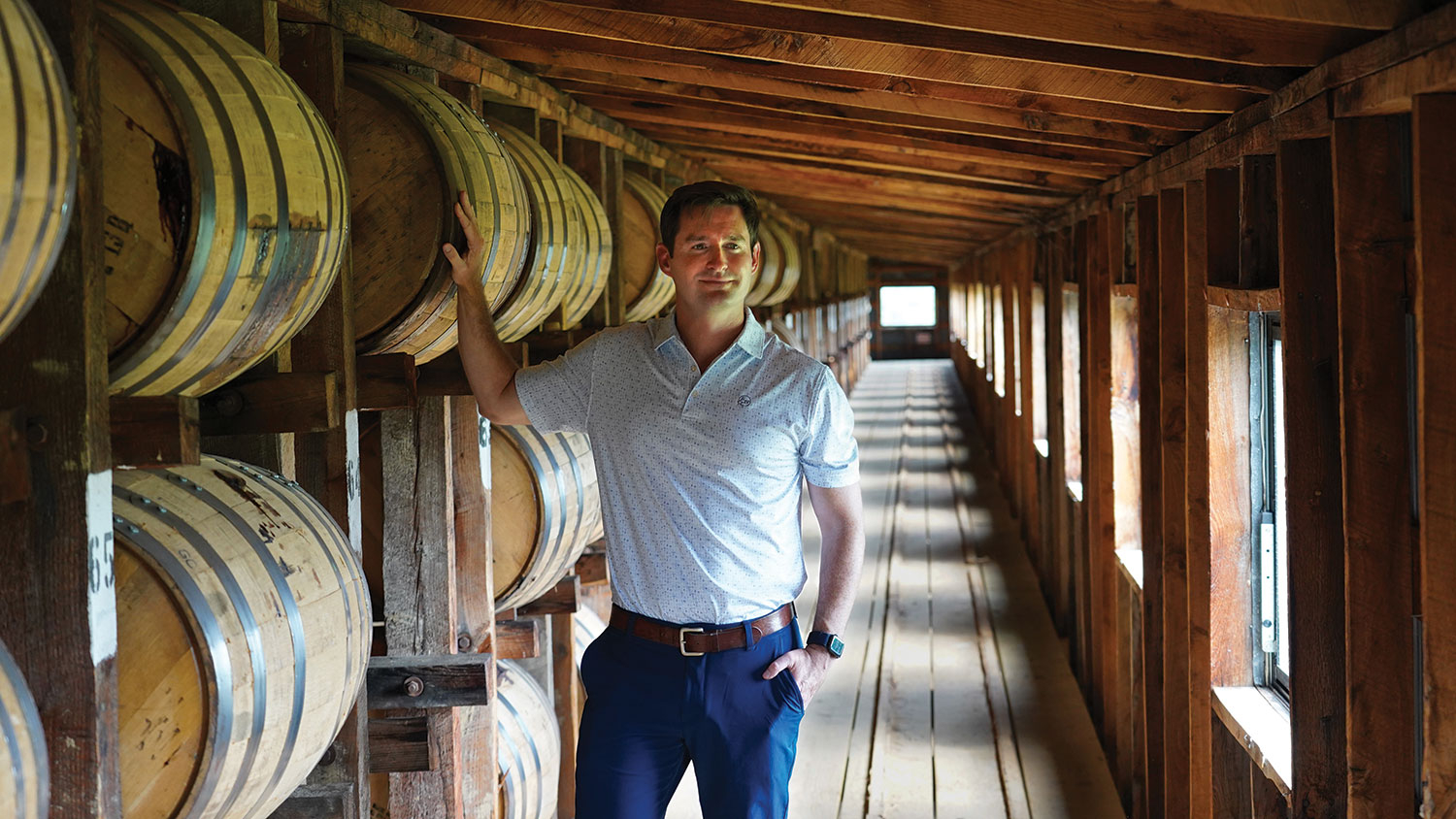The next time you drive down Western Boulevard past the I-440 interchange, pay some extra attention to the traffic flow, and you’ll see the results of Minerva Bonilla’s Ph.D. research in action.
That interchange is a diverging diamond interchange (DDI), which allows drivers from both directions to temporarily cross over onto the left side of the road. Drivers who need to turn left onto I-440 no longer have to turn against oncoming traffic. For many, the first time driving there feels strange.
“But even though DDIs are perceived as scary at first, once people get familiar with them, you see many benefits,” Bonilla said. “For example, you enhance safety. By doing that small shift to the opposite lane, you reduce the number of conflict points which are potential crashes drivers can have. By reducing those, it is safer for drivers, and also for pedestrians and bicyclists.”
Bonilla, who graduated in August from NC State with her Ph.D. in construction and transportation engineering, likes to take on projects with tangible results, and especially those that make a positive impact on people’s lives.
Now an assistant professor at Texas A&M University in the Department of Construction Science, she is continuing her research on alternative intersections and focusing on transportation infrastructure, project performance and Hispanic workforce development.

“I want to do research on workforce development, especially Hispanic workforce, because construction is currently suffering a labor shortage, and they are the largest group in the industry,” she said. “Unfortunately, in construction, they are also the ethnic group with lower wages and higher accidents rate. I want to focus on why this is happening and how to help them have better job conditions.”
Bonilla grew up in El Salvador and moved to the United States with her family when she was 17.
“When we came to the U.S., I did one year of high school, and then I was ready for college,” she said. “But my English wasn’t ready for college.”
Bonilla attended Houston Community College while continuing to learn English, and then transferred to Texas Tech University. There, she decided to pursue a B.S. in civil engineering. As an undergraduate student, she was part of TRIO, a program that, among other things, supports first-generation college students like Bonilla. Her adviser encouraged her leadership skills and to consider studying abroad.
“Because of her, I went abroad and went to Brazil,” she said. “I was working with TETO, which is similar to Habitat for Humanity, and they do emergency housing for low-income families. … I was helping with the design of the house models, purchasing materials, and other activities related to construction. And that’s when I fell in love with construction.”
Bonilla liked the hands-on aspect and being able to see what she was doing, and she found joy in making something that was physically out in the world.
“I want to do research on workforce development, especially Hispanic workforce, because construction is currently suffering a labor shortage, and they are the largest group in the industry …”
Graduate school was not on her radar due to its high cost. But her undergraduate TRIO adviser encouraged her to look into assistantship opportunities. She applied to four schools — one dream university, two that she considered to be middle range, and one safety school. She had a two-hour interview with NC State faculty members, including her future advisor, William Rasdorf, professor in the Department of Civil, Construction, and Environmental Engineering.
“It was very nice because I was able to get to know them better and also do a lot of questioning,” she said. “Because yes, you’re getting your degree, but you are also committing to doing some work. You need to make sure whatever you do, you’re doing it for the right purposes.”
Her dream school was the right fit, and Bonilla started as a master’s student at NC State in 2018. After one semester, she realized she loved research and wanted to pursue a Ph.D.
She selected her Ph.D. research topic by talking with North Carolina Department of Transportation (NCDOT) employees to figure out their needs. Her research focused on construction inhibitors affecting alternative intersections and interchanges (AII) and the promotion of best-use practices to design and construct AIIs more efficiently, especially in areas with spatial constraints, such as a busy area downtown. This is what led to the DDI at Western Boulevard and I-440, and another one is currently being built at the I-40 and Airport Boulevard interchange.
Because AIIs involve unique construction approaches, they are perceived to be unfamiliar to construction professionals, which generate discrepancies that prevent their adoption. That’s where Bonilla’s research came in. She interviewed stakeholders and listened to their concerns — like what inhibitors were more prone to affect these types of projects, or how to minimize delays and monetary impacts — and found ways to alleviate and prepare for them.
Alternative intersections like the DDI help traffic flow more smoothly without needing to expand the intersection by adding more lanes or a bridge, which saves money.
“With this simple tweak on the design, then you are able to move [traffic volumes] faster,” she said. “So that’s one of the examples of how a simple geometric change allows drivers and allows cities to accommodate future needs.”
Bonilla is excited to see these alternative intersections continue to grow in popularity, and she’s looking forward to her career as a faculty member, which was her goal when she decided on a Ph.D.
“It’s been good,” she said of her faculty journey so far. “People have been very welcoming, and I’m happy that I’m near family so I can see them more often.” In the short-term, she’ll be making a trip back to North Carolina to celebrate her accomplishments during NC State’s December commencement ceremonies. She’ll be here for two weeks with her family visiting the mountains, piedmont and coast and eating at a few of her favorite restaurants, including Seol Grille, Brecotea and Neomonde.
This post was originally published in College of Engineering News.
- Categories:



